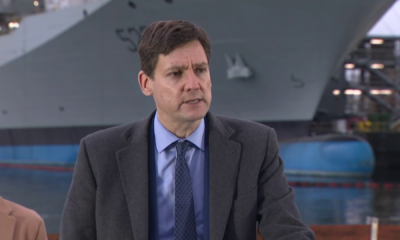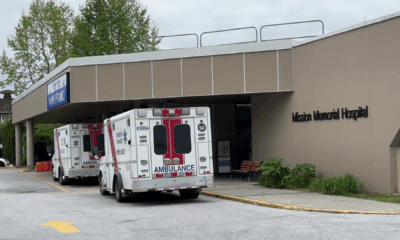Local News
TransLink working on initiative to improve truck safety

Overpass strikes keep happening around the Lower Mainland, stemming in part from the complexity of navigating our roads.
TransLink said Friday it has been working to make the trucking industry safer and more efficient by streamlining permitting and standardizing definitions, which could eventually have the added benefit of reducing collisions with overhead infrastructure.
“This is not going to directly reduce the number of overpass strikes overnight,” said Thor Diakow, a spokesperson for TransLink.
“The thinking is that it’s going to help the permitting process to hopefully, ideally, reduce the number of overpass strikes, but there’s still a lot of work to be done.”
This comes amid growing trade uncertainty with the U.S. and a nationwide push to make doing business in Canada with Canadians less problematic.
The BC Trucking Association is calling the initiative a welcome development, since jurisdictions around the region have had a hard time coming to an agreement on some of the most basic definitions, like what constitutes a truck.
“We talk about interprovincial trade barriers; we had trade barriers between municipalities in Metro Vancouver,” said Dave Earle, the association’s president and CEO.
TransLink, which has a large role in maintaining trucking routes in the region, says these inconsistencies have led to confusion when it comes to trip planning.
“Take an example like Lougheed Highway,” Diakow said
“A truck is travelling through Maple Ridge, Pitt Meadows, Port Coquitlam, Coquitlam, Burnaby, and into Vancouver. That’s a lot of jurisdictional permits.”
This is especially true in the case of oversized loads, which are now being standardized.
Removing those bureaucratic headaches should also help address the scourge of overpass strikes we’ve seen in recent years — and there have already been more than a dozen so far this year — as simplifying routes makes planning and driving easier for truckers.












